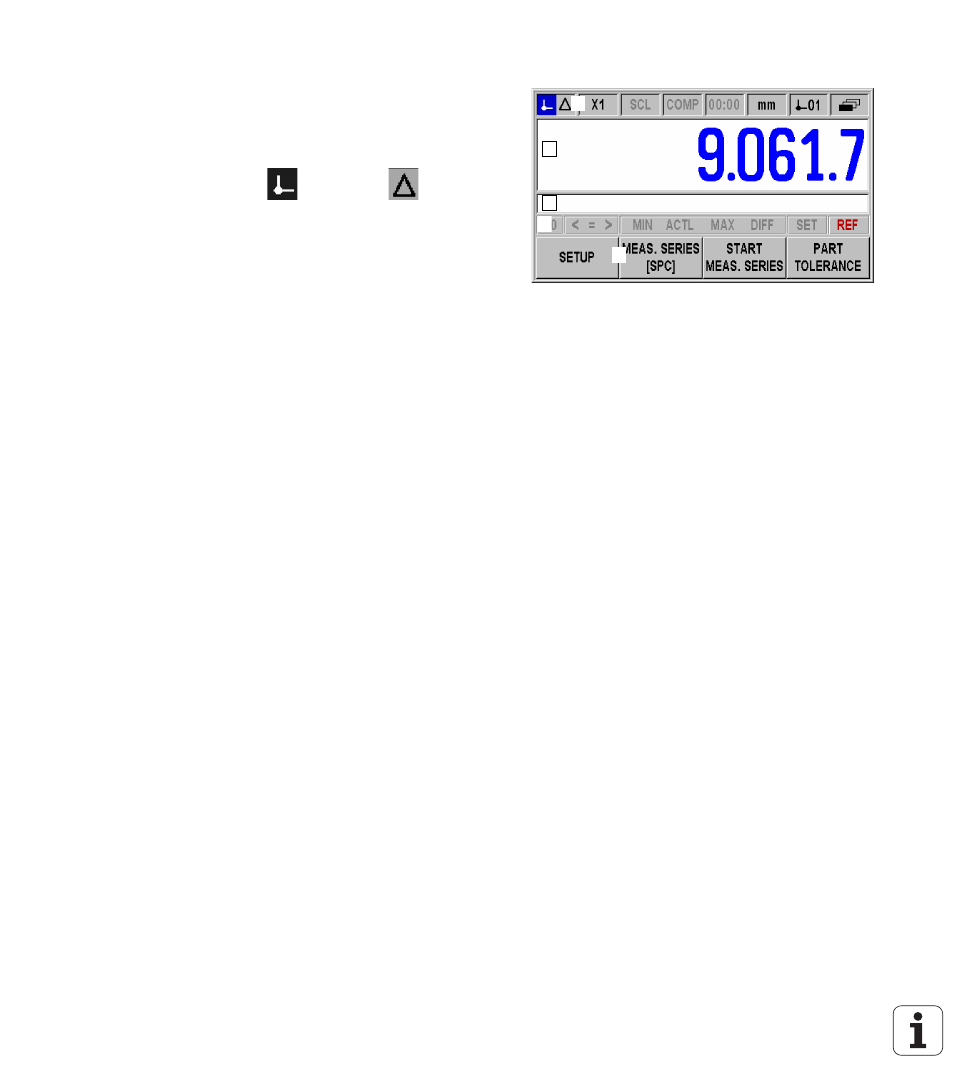Standard screen layout, I – 3 basic functions of the n d 2 87 – HEIDENHAIN ND 287 User Manual User Manual
Page 23

ND 287
23
I – 3 Basic functions of the
N
D
2
87
Standard screen layout
In addition to displaying position information, the ND 287 standard
screen also displays information on settings and operating modes at
any time (see Fig. I.13). The standard screen is divided into the
following areas:
Fig. I.13 Standard screen
1
4
3
2
5
1
Status bar
Current operating mode:
Actual Value,
Distance-To-Go.
X1, X2 or X1:X2: Current display mode of axis or coupled axes.
SCL shown in black: Scale factor is active.
COMP shown in black: The error compensation or axis-error
compensation is active for the currently displayed axis or
coupled axes.
Elapsed time of running stopwatch: If the stopwatch is
stopped, the box appears dimmed.
MM, INCH, DEG, DMS or RAD: Currently active unit of
measure.
Currently active datum: The ND 287 allows you to work with
two different datums.
Indicates the soft-key page (soft-key row) you are currently on.
2
Position display
Length display:
Current axis value with algebraic sign.
Angle display:
Current angle value with algebraic sign and unit of measure for
display values in degrees, minutes or seconds.
When displaying the traversing speed in the series of
measurements mode, the ND 287 shows the unit of speed in
lowercase at the left edge of the screen.
3
Message line
The message line provides information on the required data
input or procedures, which is intended to support you in using
the position display unit.
If errors or warnings occur, they show up in red letters in the
message line. Acknowledge the message with the C key.
At the left edge of the message line the ND 287 displays a
measured-value counter in the series of measurements mode,
and a sample counter in the SPC mode.
If you have activated axis-error compensation with a
temperature sensor, the ND shows the value measured by the
temperature sensor at the left edge of the message line.
If a multiturn rotary encoder is connected, the ND shows the
number of revolutions at the right edge of the message line.
